Caravan for Democracy & AIPAC Policy Conference: Blog #2
Before traveling to Israel with Caravan for Democracy, I was earnestly skeptical in my support of the Israeli state. As a MENA minor, I have spent years studying the numerous human rights violations that Israel has committed against the Palestinian people. When I spent seven months studying abroad in Jordan, I lived with a Palestinian homestay family. The grandmother of my homestay family told me stories of when she was forced to leave her home in Palestine in 1950; she walked all the way to Jordan with her family. What is more, I spent my junior and senior year researching Christian Zionism in the U.S. and its subsequent impact on the livelihood of Palestinians hoping for a two-state solution.
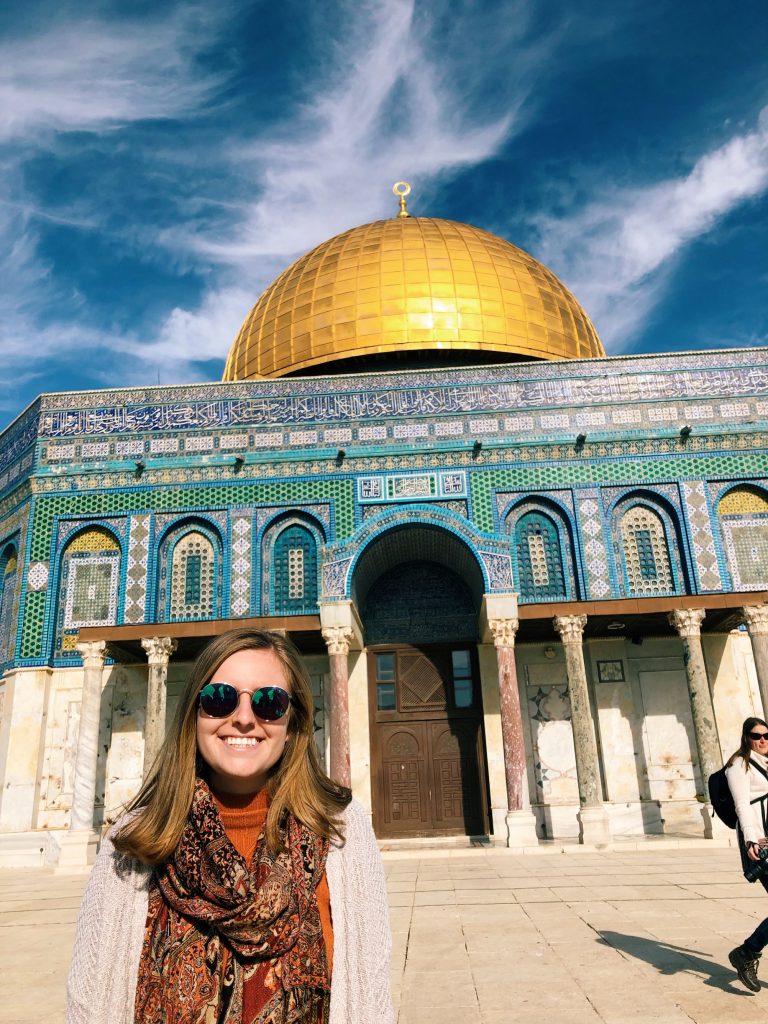
Based on these experiences, I was adamantly against the political and military foundations of the Jewish state. This mindset started to change when I took the classes “Jewish Life & Thought” and “Jerusalem: Religion, History, and Politics” with Dr. Yudit Greenberg. Dr. Greenberg, a dual U.S.-Israeli citizen, taught me about concepts such as Jewish diaspora, global anti-Semitism, and the Jewish people’s historical claim to the land of Israel.
These classes, in addition to my time spent in Israel, showed me that the Jewish people have a powerful tie to their homeland that cannot be ignored. Nonetheless, that does not excuse the various atrocities that they have committed against the native Palestinian population.
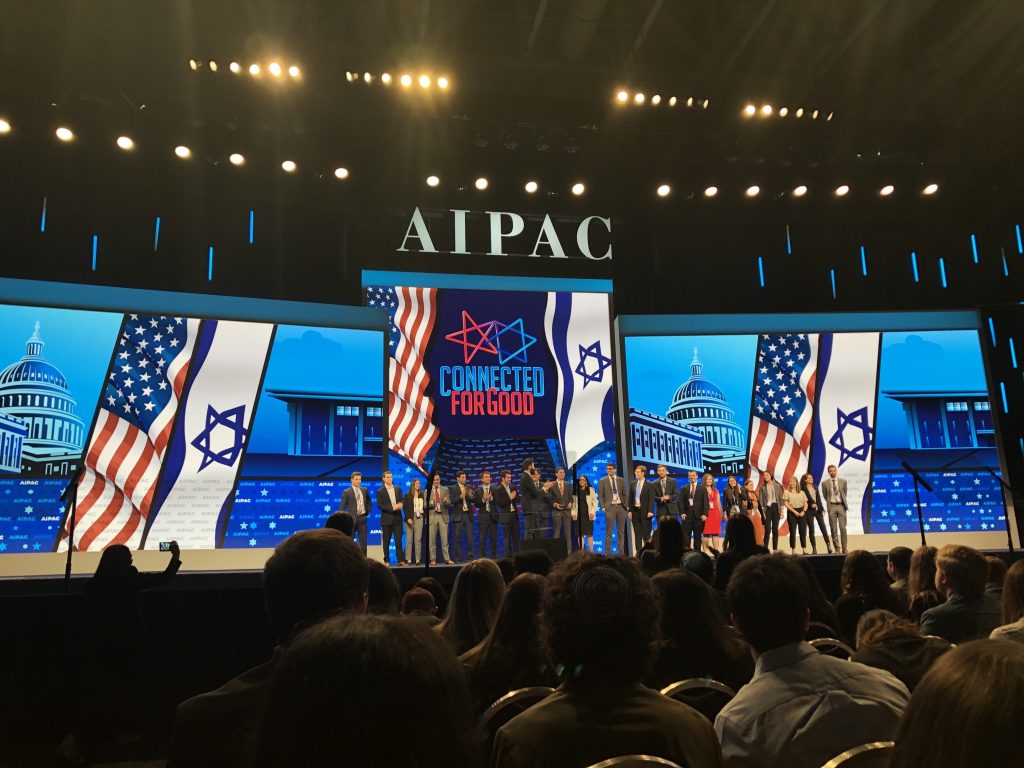
Being a participant in the AIPAC Policy Conference helped me to mitigate my understanding of the Israeli-Palestinian conflict. At the conference, I sat in on break out sessions regarding topics such as the BDS movement, the state of life in the Gaza Strip, and the military strength of Israel’s neighbors. I got to listen to distinguished speakers from both sides of the political aisle, demonstrating that their allegiance to Israel is truly bipartisan.


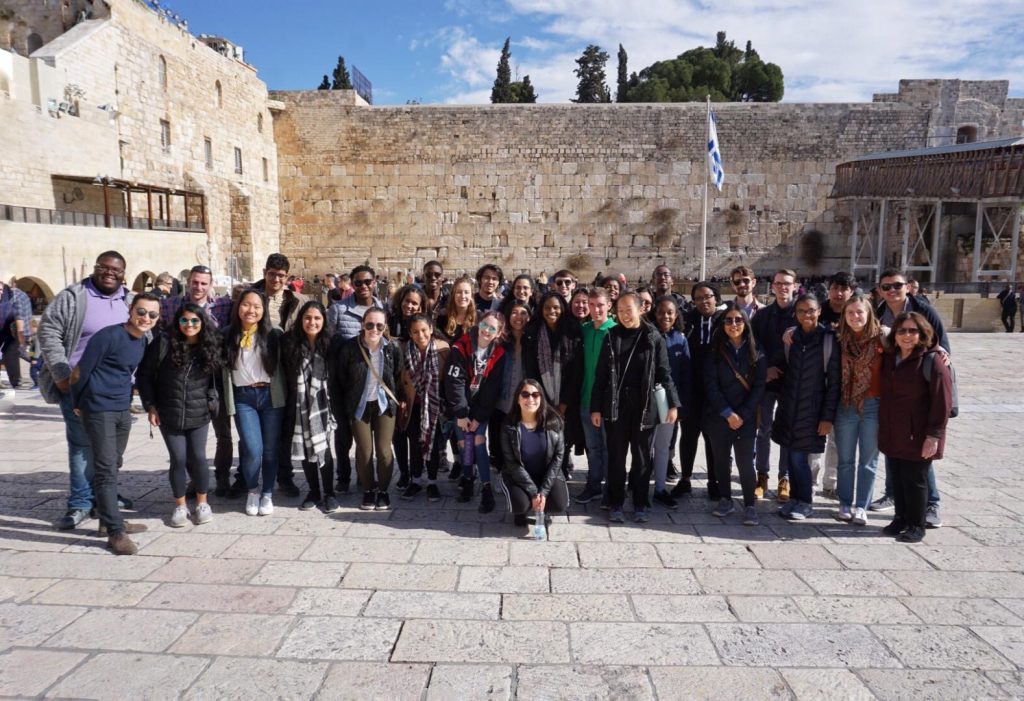
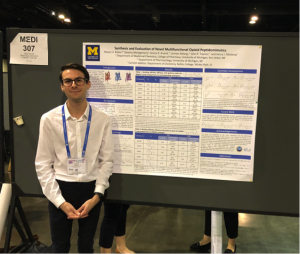
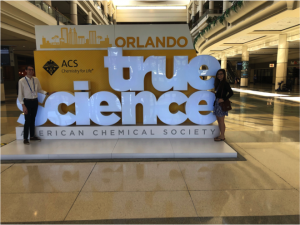
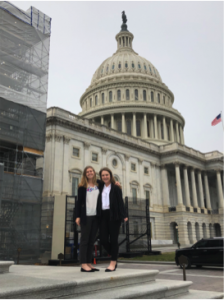
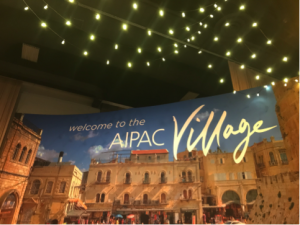
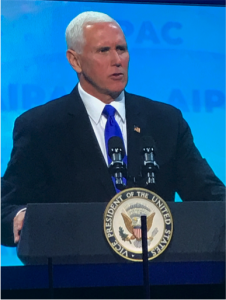
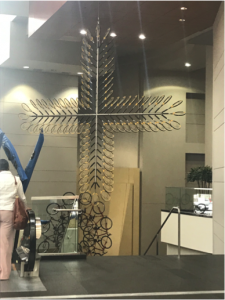
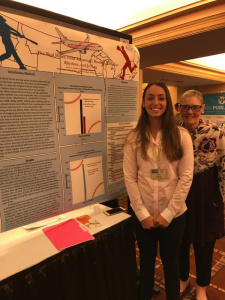 Jenny and Dr. Woodward at the 8:30-10:50 am poster session.
Jenny and Dr. Woodward at the 8:30-10:50 am poster session.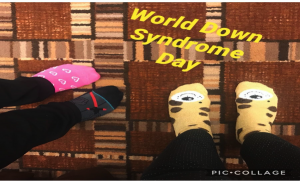 Our “silly socks!” I wore a pink sock with hearts on it and a Star Wars sock. Dr. Y wore dog socks!
Our “silly socks!” I wore a pink sock with hearts on it and a Star Wars sock. Dr. Y wore dog socks!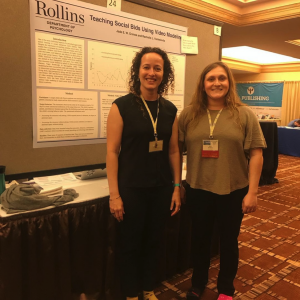 Dr. Y and I in front of my poster. I got ribbons on my badge that said “First time attendee” and “Poster presenter.”
Dr. Y and I in front of my poster. I got ribbons on my badge that said “First time attendee” and “Poster presenter.”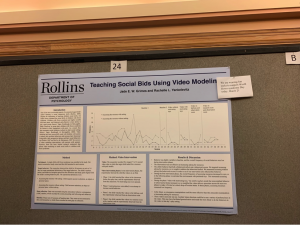 My poster presented at the conference and the sign that referenced our socks.
My poster presented at the conference and the sign that referenced our socks.